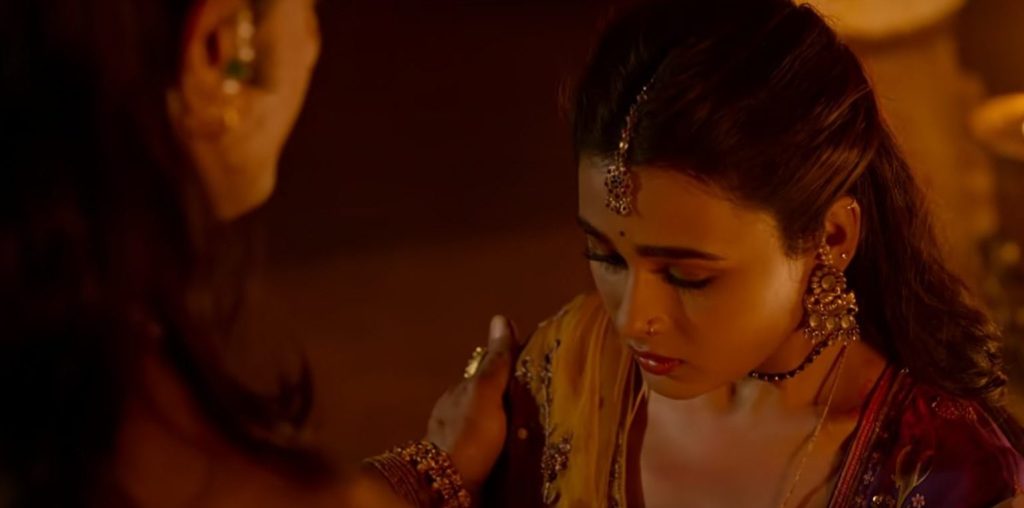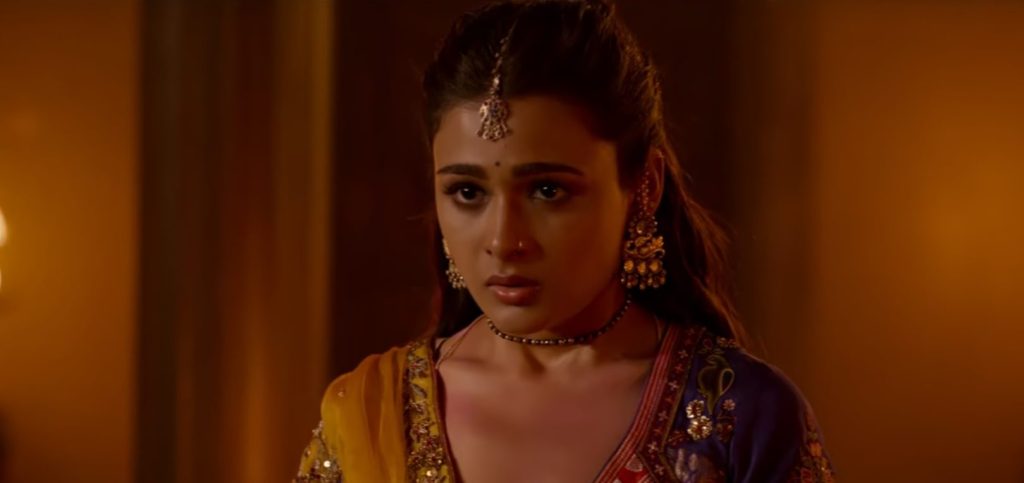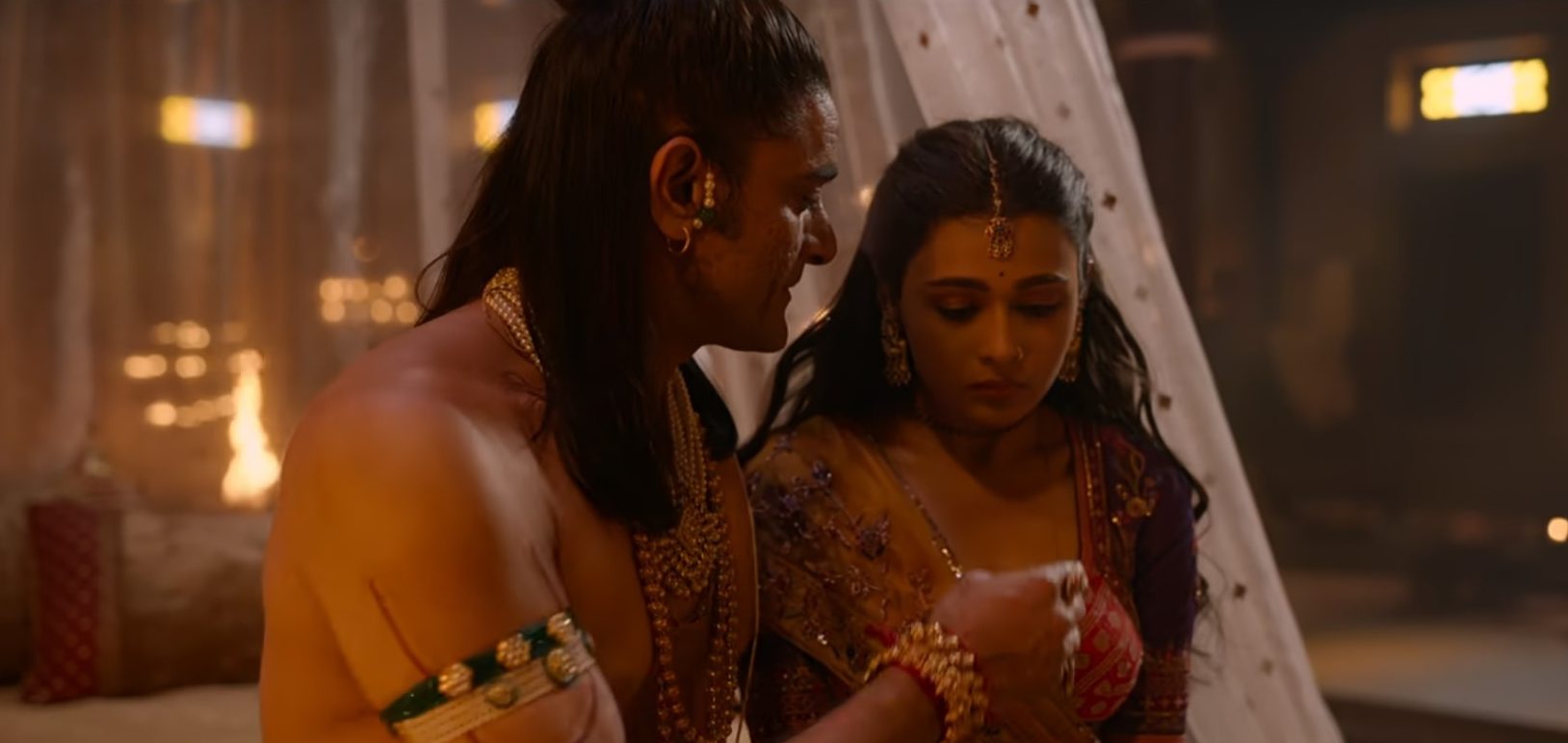In ‘Maharaj,’ an influential spiritual leader, Jadunath, elicits sexual favors from his devoted women followers in a traditional practice known as Charan Seva. The film’s protagonist, Karsandas, gets embroiled in the lecherous figurehead’s twisted affairs when his fiance, Kishori, is enticed into the royal chamber under the promise that she is serving God. According to the narrative, these practices are revealed to be exploitative ways in which Maharaj Jadunath indulges in sexual intercourse through the willingness of his followers to be blessed by the God-like man. As such, the act of Charan Seva becomes a relevant discussion point, compelling viewers to decode its use during 19th-century India and whether it played a part in reality.
Charan Seva Led to the Exploitation of Women in Bombay
During the 1800s, India was in the grips of a deep-rooted religious zeal that was unquestionable for many. In the hopes of gaining blessings from their gods, families would often rush to the temple and worship the head priest or spiritual guru in a manner that elevated his status from an ordinary person to that of a God-like figure. As a result, they were often viewed in many quarters as equal to God himself and an absolute authority on all matters of faith. However, the same opened up avenues for corrupt individuals to exploit the people’s blind devotion.

In the case of ‘Maharaj,’ an extreme version of this corruption of power is illustrated through the actions of Maharaj Jadunath of the Pushtimarg sect of Hinduism. Invoking Charan Seva, a traditional concept of voluntary service to elders and religious leaders, the Jadunath uses it to lay with several female devotees who walk through the temple doors. By tapping into the religious fervor of his followers, he dupes them into believing that they are servicing God when they have sex with him. This misuse of power and influence becomes a significant point of controversy within the narrative as the protagonist, Karsandas, exposes the real face of Jadunath.
The unfortunate truth is that in the aftermath of the Maharaj Libel Case of 1862, which was the real-life basis for the film’s narrative, several women were found victims of the Bombay maharajas who were active at the time. Consequently, the reality of religious leaders’ debasement of the Charan Seva tradition to utilize it in exploiting their devotees entered a larger social discussion. To appease these figureheads, several married men would often bring their wives and young daughters with them as an offering to their sect leader, with the expectation that sexual favors were a part of the mediation.
Reportedly, Jadunath also groped girls who were just 14 years old. Often, this was the result of families forcing their beliefs on their young daughters, who, after engaging in sexual acts with these sect leaders, were considered fortunate and blessed to be chosen by the mediators of God. There were celebrations at their house to mark the occasion as an auspicious moment of great importance.
The Charan Seva Scene Was a Challenging and Eye-Opening Moment For the Actress
Shalini Pandey, who plays Kishori, had a difficult time processing the intense and overwhelming emotions of the scene where she sleeps with Jadunath in his royal chambers at the Haveli. Initially, she considered Kishori’s decision to lie with the man as a sign of a gullible person, a viewpoint that changed in her mind once she went through the filming of the ordeal herself. It revealed to her the conditioning and programming that had been built into the character, where she was so deeply invested in her faith and religious zeal that she was blinded by what she was doing.

In an interview with Bollywood Hungama, Pandey said, “When I actually did that scene with the Maharaj, the Charan Seva scene… till the time I actually did it, I did not realize what impact it had on me because I did the scene and suddenly, I went out and I told my team I don’t want to be in a closed room, I need time, I need some fresh air, I am getting a little anxious and Jaideep Ahlawat [who plays Jadunath] understood it.” She was wrecked by the notion of living through Kishori’s ordeal, one where she had willingly submitted to Jadunath only to realize she had been short-changed massively.
‘Maharaj’ depicts the misuse of traditional practices that are steeped in Hinduism through the twisted version of the Charan Seva sexual favors. However, these practices were quite common, as highlighted by the reality of the Maharaj Libel Case and the societal norms that made such violation of human rights possible without anybody being questioned – at least until Karsandas came along. Summing up her thoughts on Kishori’s terrible ordeal, the actress said, “When you feel and do it and think about it, it shatters you. Then you realize she is not stupid. I hope she knew that this was happening to her.” In the case of many, the exploitation was so routine that they didn’t.
Read more: Is Maharaj a True Story? Is Jadunath Based on a Real Religious Leader?


You must be logged in to post a comment.